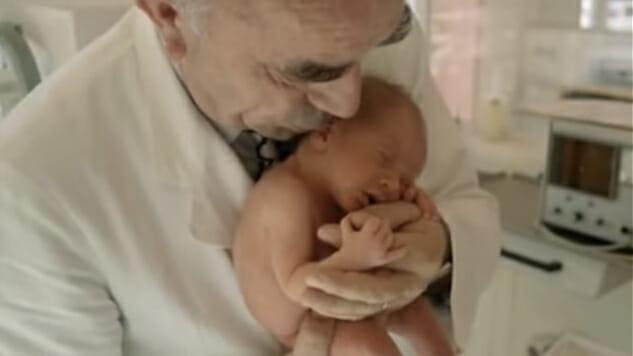An Ear for Film: Signs of Life
The three best movie-related podcast episodes of the week.

Each week, Dom plumbs the depths of podcast nation to bring you the best in cinema-related chats and programs. If writing about music is like dancing about architecture, then writing about movie podcasts is like listening to someone describe someone dancing about architecture.
Have a suggestion for a good movie podcast? Slide into Dom’s DMs on Twitter.
As humanity solves cold cases and suffers brain injuries because of Pokemon, the world collapses around us, the foundations of our shared civility eroding the further we retreat behind panes of glass and slabs of touch screens. It’s all very sad, but at least Nintendo has solved society’s obesity epidemic.
Among so many things, I’ve been thinking a lot lately about interviews. Because: Interviews are hard. As a pop culture journalist of sorts, I am often required to conduct them, but rarely do they ever feel more successful than simply tolerated, as if for both me and the person I’m interviewing there is only awkwardness and feigned politeness until it’s been silently agreed upon that the conversation has lasted long enough to qualify as worthwhile, that enough has been cursorily discussed to satisfy my word count.
Probably to the benefit of no one, I begin most interviews by explaining the article I’m going to write to the person I’m interviewing, typically attempting to make excuses for any questions I ask which may have been asked countless times of the interviewee before. “I’m writing a profile of you, mostly targeted at people who are unfamiliar with your work, so I may ask some pretty rudimentary questions”—which really means: “I should have done more prepping, tried harder to ask unique questions, used more of my imagination to give you a better experience than those you’ve endured zombie-wandering from one press person to the next.”
But I’ve been thinking a lot about interviews lately because so many of the film-related podcasts I listen to and write about here are necessarily hosted by people who are phenomenal at conducting them. They elevate small talk into an unparalleled art; they can make the most disagreeable, aloof people seem open, warm even. And then they attempt to close that distance even further, pressing such people to excavate the reasons—the fears, the insecurities, the solipsism, the anger—which drives them to be so disagreeable and aloof. They invite secrets, give the impression that such secrets are safe with them. They listen—and they listen well.
Maybe I’m oversimplifying—I am—but I feel like truly talented interviewers are of a particular brand of person that should be cherished. Especially now (again, oversimplifying) when so much of what constitutes our popular culture, greased by one oily spurt of the zeitgeist after another, is built on the notion that communication is clearest, easiest, best when broken down to its empirical parts—that passing messages from one entity to another (or from one entity blindly into the void, devoid of consequence) is most functional when completely dehumanized.
So my picks for this week’s three best movie-related podcast episodes celebrate the careful ingenuity of the interviewer, of just how difficult it can be to create a safe space—both for open conversation and for opening up in general.
(Norm Wilner, you are a Titan of the Interview. I apologize for not including Someone Else’s Movie this week.)
-

-

-

-

-

-

-

-

-

-

-

-

-

-

-

-

-

-

-

-

-

-

-

-

-

-

-

-

-

-

-

-

-

-

-

-

-

-

-

-

 The Cinephiliacs
The Cinephiliacs The Treatment
The Treatment Talk Easy
Talk Easy






































